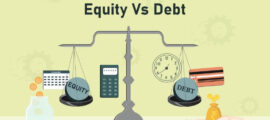Financial Literacy for Young Adults: A Guide to Smart Money Management
Financial literacy is a crucial skill that every young adult should develop to build a secure and stable future. Unfortunately, personal finance is often overlooked in traditional education, leaving many young people unprepared to manage their money effectively. This guide will cover essential financial concepts that every young adult should understand to make informed decisions and achieve financial independence.
1. Understanding the Basics of Budgeting
Budgeting is the foundation of financial literacy. It involves tracking income and expenses to ensure that you are living within your means. A simple budgeting method to follow is the 50/30/20 rule, where:
- 50% of your income goes to necessities (rent, utilities, groceries, transportation).
- 30% is allocated for wants (entertainment, dining out, subscriptions).
- 20% is set aside for savings and debt repayment. Using budgeting apps like Mint, YNAB (You Need a Budget), or even a simple spreadsheet can help you stay on track.
2. Building an Emergency Fund
An emergency fund is a safety net that covers unexpected expenses such as medical emergencies, car repairs, or job loss. Experts recommend saving at least three to six months’ worth of living expenses in a separate, easily accessible savings account. Start small and contribute consistently to build your emergency fund over time.
3. Understanding Credit and Debt
Credit can be a useful financial tool, but it must be managed wisely. Here’s what young adults should know about credit and debt:
- Credit Score: A good credit score (typically 700 and above) is essential for getting approved for loans, renting an apartment, and sometimes even job applications.
- Managing Debt: Avoid unnecessary debt, pay off credit card balances in full each month, and prioritize high-interest debt such as credit cards and personal loans.
- Student Loans: If you have student loans, understand your repayment options and try to pay more than the minimum when possible to reduce interest costs.
4. Smart Saving and Investing
Saving and investing are key components of financial growth. Here’s how young adults can get started:
- Savings Accounts: Use high-yield savings accounts to earn more interest on your money.
- Retirement Accounts: Start investing early in retirement accounts such as 401(k)s or IRAs to benefit from compound interest.
- Investing in the Stock Market: Consider investing in low-cost index funds or ETFs, which offer diversification and long-term growth potential.
5. Avoiding Common Financial Mistakes
Many young adults make costly financial mistakes that can set them back for years. Avoid these pitfalls:
- Living Beyond Your Means: Don’t spend more than you earn.
- Not Having a Budget: Without a plan, it’s easy to overspend.
- Ignoring Credit Card Debt: High-interest debt can quickly spiral out of control.
- Failing to Save Early: The earlier you start saving and investing, the better.
6. Seeking Financial Education
Financial literacy is an ongoing journey. Read books, follow financial blogs, listen to personal finance podcasts, and consider speaking with a financial advisor if needed. Knowledge is power, and the more you learn, the better equipped you will be to make smart financial decisions.
Conclusion
Becoming financially literate as a young adult sets the stage for a lifetime of financial success. By budgeting wisely, saving consistently, managing debt responsibly, and investing for the future, you can achieve financial independence and live a stress-free financial life. Start today, and your future self will thank you!






Leave A Comment